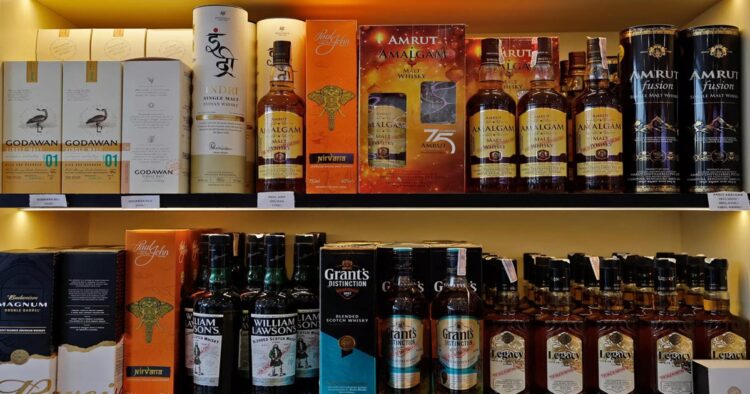Rajesh Agrawal, Additional Secretary at the Ministry of Commerce, revealed a projection that exports of Indian-made spirits are expected to surpass the USD 1 billion mark in the coming years. The growth is attributed to the rising global demand for these beverages.
The export value of Indian spirits for the year 2022-23 already reached USD 325 million, and experts foresee a significant surge driven by escalating global demand. Agrawal emphasized the importance of negotiations for free trade agreements (FTAs) in facilitating this growth, aiming to secure duty concessions for Indian spirits.
FTAs and Challenges in the Global Alcohol Market
Agrawal highlighted the dominance of Scotch in the global alcohol market, with a staggering worth of USD 13 billion. One significant challenge in FTAs involves the maturation period for spirits, especially for whiskey. While Scotch requires a three-year maturation period, Indian whiskey matures in just one year due to the warm climate. Negotiations aim to address this disparity and resolve issues surrounding differing standards.
The Confederation of Indian Alcoholic Beverage Companies (CIABC) has actively advocated for improved market access in the European Union (EU). CIABC urges the EU to eliminate non-tariff barriers that hinder the entry of most Indian products into the EU market. The demand is for a trade deal with the EU on alcoholic beverages that mirrors the one negotiated with the UK.
CIABC’s Appeal for Fair Trade Practices
Vinod Giri, Director General of CIABC, emphasized the need for the EU to reconsider regulations that create barriers for Indian spirits. He pointed out that current EU regulations, especially regarding the maturation period for whiskey and brandy, do not align with the warm Indian climate. Long maturation increases costs for Indian products significantly, and CIABC stresses that a one-sided trade agreement will not benefit the Indian industry.
As negotiations continue, the Indian spirits industry remains optimistic about its potential in the global market, with a focus on creating fair and mutually beneficial trade agreements.

















Comments